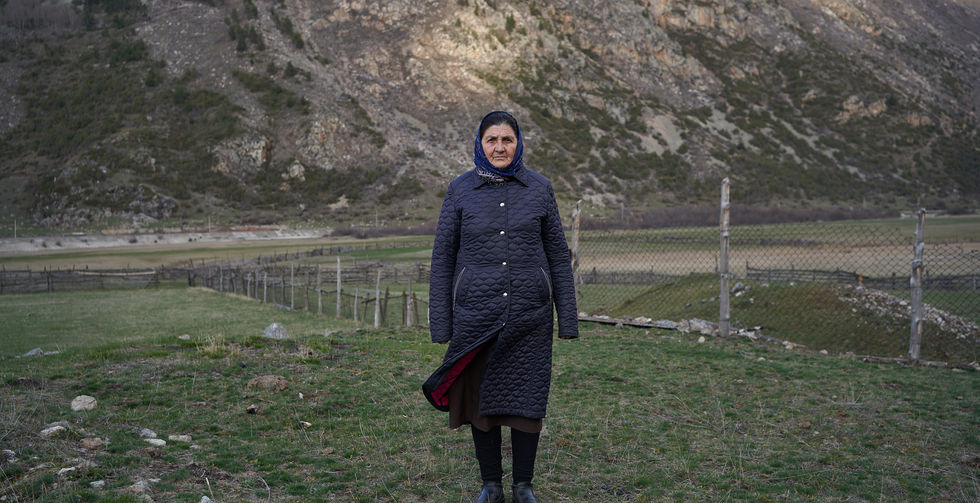
Courtesy of
Anastasia Shubina
Ann Lesley BarTur Award
Anastasia Shubina
Docdocdoc
Saint Petersburg
Russia
Highly Commended
Anastasia Shubina is an artist from Saint Petersburg, working with documentary and conceptual photography, film, and video art. Currently based in Armenia. She has a philosophical education, as well as education in the field of cinema and photography. Her work has been presented at solo and group exhibitions, as well as at a number of film festivals in Europe, Asia, America, and Australia. The works have been repeatedly published in Russian and international editions and are finalists in competitions. In her personal projects, she explores the themes of mythology, anthropology, and historical trauma.
Deportation
Khurzuk, Uchkulan and Kart-Dzhurt auls, Karachay-Cherkessia, Russia
2021
In 1943, the Soviet leadership forced the Karachays to leave their lands in the North Caucasus and move to Central Asia. Officially, the Karachays were deported for collaborating with German occupiers and opposing the Soviet regime, but these charges were later dropped. During the night, the Soviets cordoned off villages and ordered people to leave their homes under threat of execution. Food was only permitted for a few days. Thus, the Karachays spent several weeks on the road, suffering from hunger and disease in overcrowded cattle cars. In Central Asia, the people were divided and resettled in several regions of the Kazakh and Kirghiz SSRs. Living conditions were extremely difficult. They lived in dugouts and used the belongings brought from the Caucasus. In the first few years of exile, the population decreased by a quarter. Only 13 years later in 1956 the Karachais were rehabilitated and returned to their homeland.
Khurzuk, Uchkulan and Kart-Dzhurt auls used to be the cultural and economic center of Karachay, but after the deportation they fell into desolation. Now, only three thousand people live there, many of whom are old people who survived deportation or were born in Central Asia. Despite being deported for a long time, they retain their culture and language. The Russian government recognized the deportation of the Karachays as genocide in 1991.












